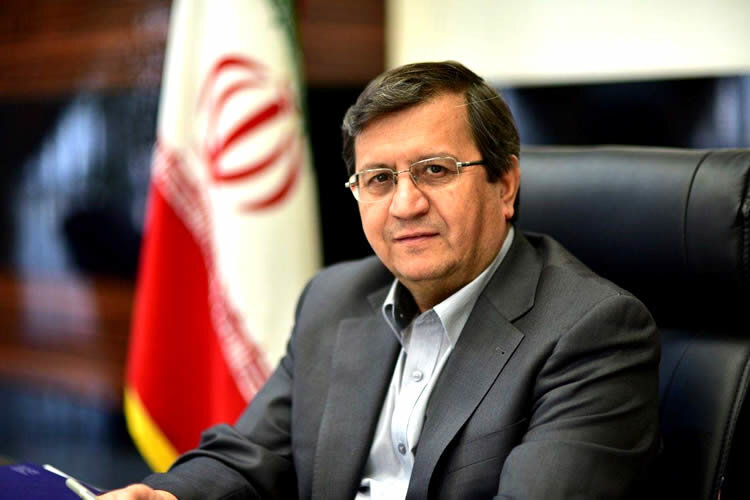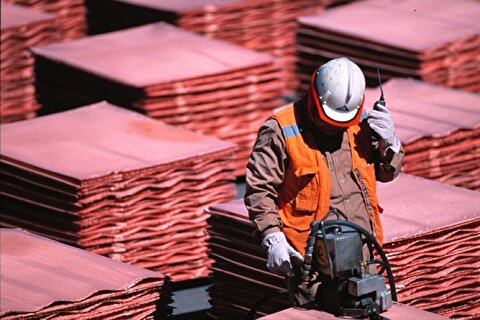
CBI governor calls controlling inflation 'a major priority'

Given the threats of escalating inflation [for the economy] by imposing serious damage to the middle and lower classes of society and creating uncertainty as well as preventing sustainable production, it is logical that society expects the central bank to focus on controlling inflation,” Hemmati wrote in an Instagram post on Sunday.
Despite the hardship that people are enduring because of the sanctions, Iran's economy has not collapsed as the United States imagined, and it is showing signs of moving away from the recession; so all efforts by the central bank should be aimed at controlling inflation in any way possible to further stabilize the economy, the official said.
“Over the past two years, the central bank has been under increasing pressure, mainly due to the sanctions and the negative supply shocks, especially at a time when the accumulated liquidity force is being drained on prices, since other problems, including the coronavirus outbreak and the budget deficit, have led to the inevitable escalation of liquidity growth,” he wrote.
Implementing monetary policies to deal with negative supply shocks is difficult even under normal circumstances, let alone in the Iranian economy, which also faces a lot of structural problems, he said.
“The main task of the central bank is to stabilize prices and then to prevent a recession and maintain production, however, according to economic theory, clearly it is not possible to achieve many goals with a limited number of tools,” the governor added.
Hemmati had previously said that the positive balance in Iran’s non-oil trade is an indication that the country’s economy is moving forward.
Like many other countries around the world, Iranian economy has been struggling with the negative impacts of the coronavirus outbreak in addition to the problems caused by the U.S. sanctions.


Newmont nets $100M payment related Akyem mine sale

First Quantum scores $1B streaming deal with Royal Gold

Caterpillar sees US tariff hit of up to $1.5 billion this year

Gold price rebounds nearly 2% on US payrolls data

Copper price collapses by 20% as US excludes refined metal from tariffs

St Augustine PFS confirms ‘world-class’ potential of Kingking project with $4.2B value

B2Gold gets Mali nod to start underground mining at Fekola

Goldman told clients to go long copper a day before price plunge

Copper price posts second weekly drop after Trump’s tariff surprise

Codelco seeks restart at Chilean copper mine after collapse

US slaps tariffs on 1-kg, 100-oz gold bars: Financial Times

BHP, Vale offer $1.4 billion settlement in UK lawsuit over Brazil dam disaster, FT reports

NextSource soars on Mitsubishi Chemical offtake deal

Copper price slips as unwinding of tariff trade boosts LME stockpiles

SAIL Bhilai Steel relies on Danieli proprietary technology to expand plate mill portfolio to higher steel grades

Alba Discloses its Financial Results for the Second Quarter and H1 of 2025

Australia weighs price floor for critical minerals, boosting rare earth miners

Australia pledges $87M to rescue Trafigura’s Nyrstar smelters in critical minerals push

Fresnillo lifts gold forecast on strong first-half surge

US slaps tariffs on 1-kg, 100-oz gold bars: Financial Times

BHP, Vale offer $1.4 billion settlement in UK lawsuit over Brazil dam disaster, FT reports

NextSource soars on Mitsubishi Chemical offtake deal

Copper price slips as unwinding of tariff trade boosts LME stockpiles

SAIL Bhilai Steel relies on Danieli proprietary technology to expand plate mill portfolio to higher steel grades

Alba Discloses its Financial Results for the Second Quarter and H1 of 2025

Australia weighs price floor for critical minerals, boosting rare earth miners

Australia pledges $87M to rescue Trafigura’s Nyrstar smelters in critical minerals push

Fresnillo lifts gold forecast on strong first-half surge














